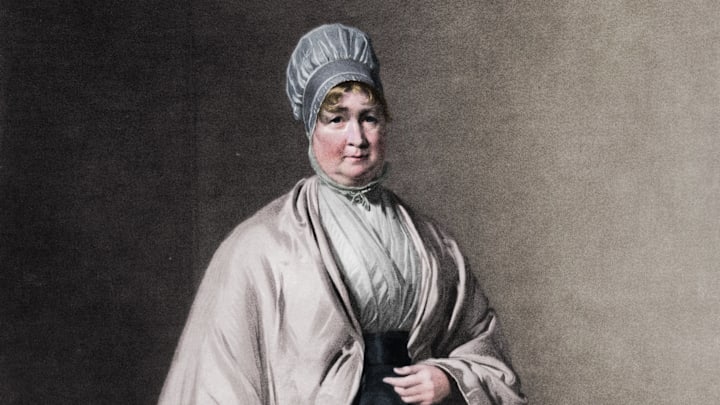In the pages of 19th-century history, there is a lesser-known name synonymous with justice and transformative change. Elizabeth Fry emerged as a beacon of hope during an era marked by societal challenges. Her devoted work in reforming prisons earned her the nickname the “Angel of Prisons,” as well as a lasting humanitarian legacy.
Advocating For Change in Newgate Prison
Fry (née Gurney) was born on May 21, 1780, in Gurney Court, Norwich, into a notable Quaker family. Her father, John Gurney, worked at Gurney’s Bank, and her mother, Catherine, was also involved in the family business. Fry was the family’s third daughter and received a good education—something that was uncommon for girls in those days. She married Joseph Fry, a fellow Quaker, in August of 1800.

Fry first became interested in prison reform after hearing an American Quaker named William Savery speak about the poor and needy; his words inspired her to take an interest in the needs of others.
In 1813, she was invited to visit Newgate Prison, where she was horrified by the conditions she witnessed. “All I tell thee is a faint picture of reality; the filth, the closeness of the rooms, the furious manner and expressions of the women towards each other, and the abandoned wickedness, which everything bespoke are really indescribable,” she wrote of the experience.
After seeing women and children horribly overcrowded in Newgate Prison, Fry returned with warm clothes and straw to help improve the comfort of those who were incarcerated. She again noticed how poorly the people in the prison were treated. They were required to buy everything they needed—including food, drinks, and even coal for warmth—from the prison warden. There was limited drinking water and no proper toilets. Fry was also introduced to the inequity of the justice system: a poor child might be sent overseas to prison for stealing a loaf of bread, while a rich person would only be required to pay a fine.
In 1817, Fry founded the Association for Enhancing the Well-being of Female Prisoners in Newgate to offer education, clothing, and religious guidance to the incarcerated women. She also started a school for the children who had been imprisoned with their mothers and campaigned for prisons to house incarcerated people based on the specific nature of their offenses as an effort to make the justice system more fair.
Elizabeth Fry’s Lasting Legacy
Fry’s work quickly became known to the rest of the United Kingdom and beyond. She traveled extensively to inspect prisons and write reports, contributing to the enhancement of prison conditions throughout Europe. She was even admired by Queen Victoria and Florence Nightingale for the compassionate way she exerted feminine influence beyond the home.

Fry spoke to Parliament about prison conditions and necessary reform in 1818. This meeting, and her work up until this point, played a significant role in influencing the Gaol Act, passed in 1823. It worked toward creating a fairer and more humane prison system by mandating prisons separate incarcerated people by sex and employ female guards for women—something Fry had previously pushed for.
She also played a crucial role in making conditions better on ships carrying incarcerated people to penal colonies in Australia. Over 25 years, she visited countless transport ships to speak with those who were imprisoned and inspect the conditions of their environment.
But Fry didn’t just focus on prison reform. Her charitable endeavors and dedication to philanthropy covered a wide range of social issues. Fry worked to better the British hospital system and advocated for improved treatment of the mentally ill. She also promoted raising nursing standards, providing education for working women, improving housing for the poor, and campaigned to abolish slavery. More than 1000 people attended her burial after she died of a stroke on October 12, 1845.
